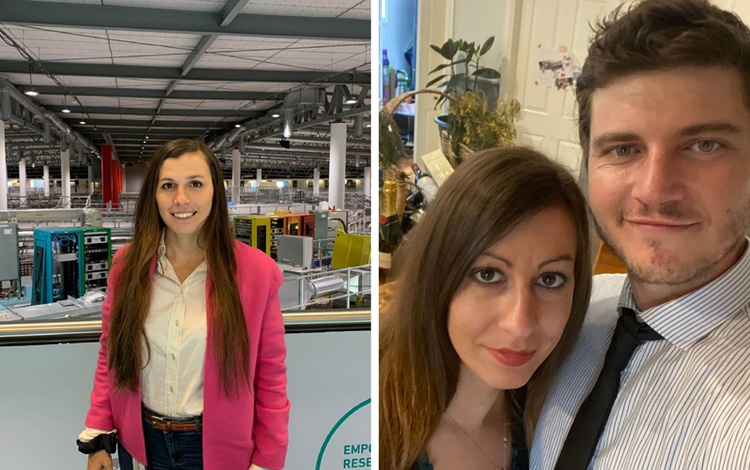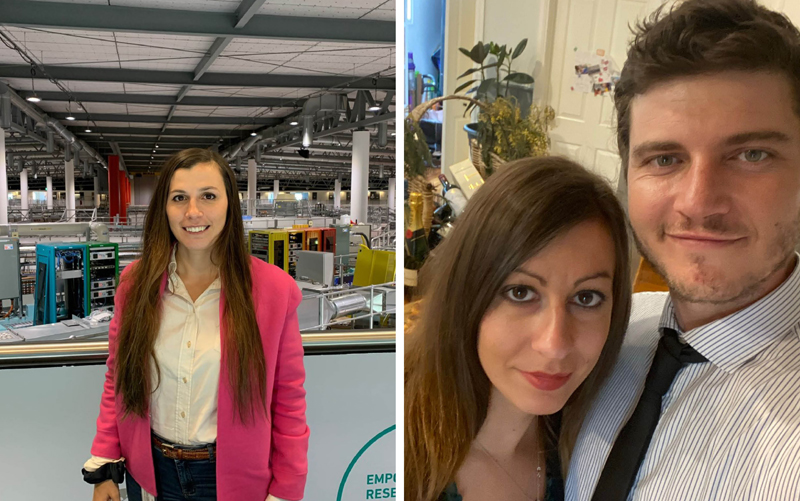However, recent government data confirms that in mid-June, 80% of student visa holders were still in Australia.
In order to contain the spread of COVID-19, in March 2020 State governments imposed nationwide lockdown policies to enforce social distancing and restrict the movement of all non-essential workers.
When businesses closed their doors, hundreds of thousands of temporary migrants lost their jobs in sectors that now are particularly precarious – hospitality, construction and retail.
But the number of overseas migrants on temporary visas in Australia has remained high despite the pandemic, with over one million international students, working holiday visa holders, skilled workers, asylum seekers or refugees.
From the start of the pandemic, the widespread job loss has had a devastating financial impact on temporary migrants. However, the Australian government excluded them from the JobKeeper and JobSeeker support packages – at odds with responses of other countries such as the United Kingdom, New Zealand, Canada and Ireland.
United Nations experts have stated that “no one should be left behind in this global fight against the pandemic. Governments must adopt measures ensuring that every individual – regardless of their migration status – is included.”
Advising temporary visa holders to go home does not diminish these obligations, nor does it absolve Australia of its moral responsibility to those members of the community whom it encouraged to greatly invest in studying and working here.
Inequalities in Australia have recently re-emerged: temporary visa holders have been excluded from the easing of border restrictions that will allow Australian citizens and permanent residents to leave and re-enter the country.
Again, the government seems to be treating temporary migrants as a source of income and not as key members of the community.
Engineer Michela Semeraro, from Rome, arrived in Australia with her partner and young son on a temporary skilled visa to collaborate on the Australian Synchrotron – the largest particle accelerator in the Southern Hemisphere – at the Australian Nuclear Science and Technology Organisation.
Unfortunately, one month after her arrival, she found herself in isolation like the rest of the population.
“My vision of this country is very different from a citizen or a permanent resident’s one: I arrived in Melbourne and shortly afterwards the lockdown was imposed. Australia, for me, is Dandenong Road – the street where I live,” said Semeraro.
“Isolation prompted me to notice, first of all, the limits of this country, in relation to visas and migration laws, and again I was disappointed by the Federal Government’s decision to open international borders only to citizens and permanent residents.
“Without a doubt, I would have returned to Italy at Christmas or my parents would have come to Melbourne.
“When my mother asks me if there is any news regarding Australian international borders, I am always forced to give her the same disheartening answer.”
Francesca De Angeli, from Verona, arrived in Australia about seven years ago, but last year she had to overcome the devastating difficulties of being a migrant during a pandemic.
After years on working holiday and student visas, in July De Angeli was hired by Loyola College, Watsonia, as a science and chemistry teacher, and is now waiting for her permanent residency application to be granted.
"I am obviously saddened by the exclusion of temporary visas from the possibility of travelling abroad,” said De Angeli.
“As a teacher, I will be on vacation from early December until the end of January, so I would certainly have gone to Italy to visit my family after more than two years of separation.
“Temporary visa holders contribute to the economy and are recognised as residents, but do not have the same rights as a citizen, and it seems nothing has changed since last year when we found ourselves without work and government support.”
Mirko Zambon, travel blogger
Mirko Zambon, originally from Verona, arrived in Australia four years ago to leave behind his old lifestyle as a promoter, and try a new path as a travel blogger.
He first landed in Perth, bought a van and drove to Portarlington in Victoria. As the pandemic hit, all camping areas were closed and Zambon found himself without a home.
“I had no job, no government support and no home, which was and still is my van,” said Zambon.
“Luckily, an Australian family hired me and welcomed me to their farm – I’m still extremely grateful for their generosity.
“Now I am in the ACT on a bridging visa, waiting for my third-year working holiday visa. I look forward to the reopening of international borders to be able to travel freely again and perhaps go and visit my family and friends in Italy.”

Alessia Crucitti, employee at Leo’s Imports
Alessia Crucitti, from the Sicilian town of Floridia, arrived in Melbourne in 2018 to visit her aunt and seek some new professional opportunities.
After her first year on a working holiday visa and a few experiences in the hospitality sector, Crucitti applied for a student visa and decided to continue her journey with her Australian partner.
Four months ago, she was hired by Leo’s Imports, an import and distribution company based in Brunswick.
“After this scary global pandemic, I would certainly have spent the Christmas holidays with my family this year,” said Crucitti.
“I’m not a citizen, but a resident for tax purposes, so I would have expected at least to be considered for the possibility of travelling abroad.
“There are so many migrants in Australia – (the opportunity of) visiting our families is a right that should be guaranteed to everyone.”













